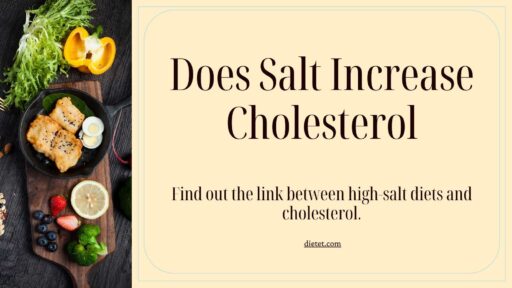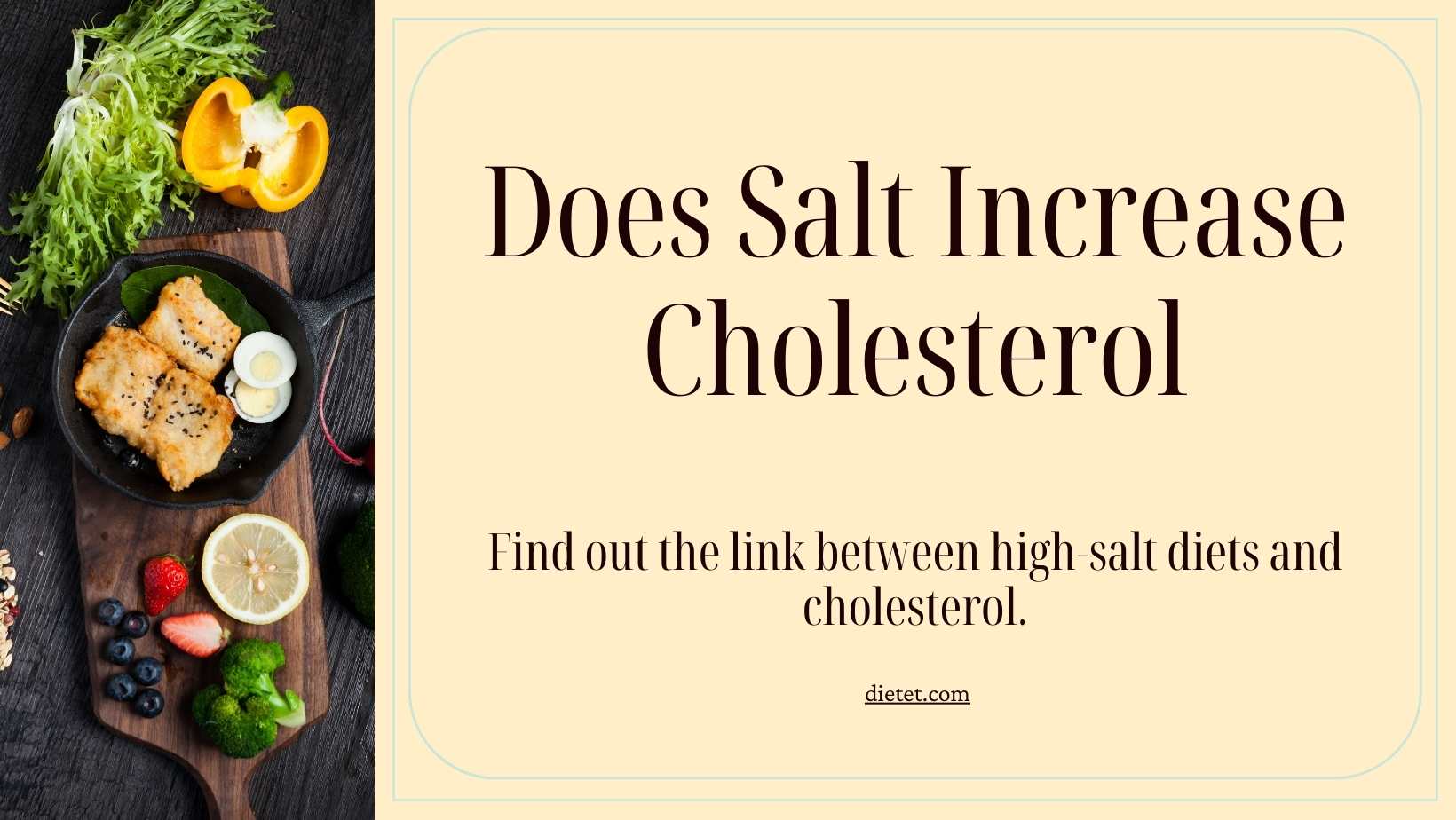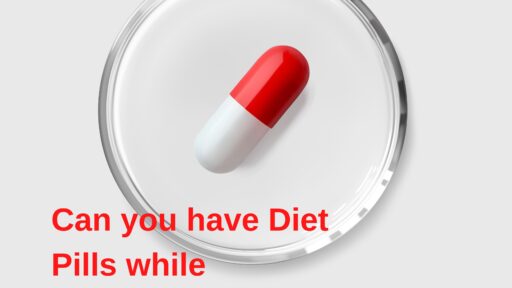Dive into the connection between salt consumption and does salt increase cholesterol. Gain insights into the role of salt in raising cholesterol levels and make informed choices for better heart health.
Introduction to the relationship between salt and Does Salt Increase Cholesterol
As individuals, we often watch our diets carefully to see how they affect our health. Salt and whether salt increases cholesterol are commonly discussed issues with regard to diet and health. Does Salt Increase Cholesterol is a fatty substance produced naturally by our bodies and is highly essential in many body functions. However, an overabundance of cholesterol in the blood can result in several health problems, including heart diseases. Conversely, salt is common in many of our favorite dishes, but it has been associated with negative health effects such as high blood pressure. In this write-up, I will find out if salt really increases cholesterol.
Understanding Cholesterol and Its Impact on Health
It’s crucial that one has a clear grasp of what cholesterol is and how it affects human life before delving into the link between salt and cholesterol. Cholesterol is a waxy substance found in lipids or fats in one’s bloodstream. It plays significant roles in hormone production, making vitamin D as well as digestive juices. Our bloodstream carries two types of lipoproteins that transport cholesterol: low-density lipoprotein (LDL) and high-density lipoprotein (HDL). LDL is known as “bad” cholesterol because it can gather up within arteries, thereby contributing to plaque buildup leading to heart disease, whereas HDL, referred to as “good” cholesterol, helps remove LDL from one’s bloodstream.
The Role of Salt in Our Diets
Salt, chemically known as sodium chloride, is widely used as a seasoning or preservative mineralizing foos. The mineral improves the taste of the foods while its antibacterial effects preserve them from spoilage, thus increasing their shelf-life. Salt consumption above recommended levels has been linked to various health challenges like high blood pressure, among others. The World Health Organization recommends adults not consume more than 5 grams per day, which is approximately one teaspoon.
Exploring the Link Between Salt and Cholesterol
For years, salt (sodium) has been regarded as a major perpetrator of high cholesterol. But is the truth saltier than we think? Let’s delve into the research and explore the complex relationship between salt and cholesterol.
A Moderation Game
Limited Direct Impact: Several studies indicate that in healthy individuals moderate sodium intake does not directly affect cholesterol levels. The real culprits are saturated and trans fats found in red meat, processed foods, or deep-fried goodies. Replacing them with heart-friendly fats like olive oil, avocados, or fatty fish can really help your cholesterol profile.
The Blood Pressure Bridge
Indirect Influence: Although salt may not directly target cholesterol, it could play an indirect role. High sodium intake contributes to high blood pressure, which poses a significant risk for heart disease. In fact, excessive consumption of salt doesn’t result in high cholesterol, but it raises your chances of having heart problems by affecting your blood pressure.
Individual Variations
Salt Sensitivity: Some studies suggest that certain individuals, especially those suffering from pre-existing hypertension (high blood pressure) or who have salt sensitivity, might have a more pronounced rise in LDL (“bad”) cholesterol on a higher sodium content diet.

Focus on a Balanced Diet
Personalized Approach: It is important to consult a healthcare professional who can assess your individual risk factors, blood pressure, and cholesterol levels in order to recommend a personalized dietary plan beyond just salt restriction.
Remember: Excess is Bad! Enjoy salt in moderation, put healthy fats first, and look at the bigger picture. In this way, prioritizing an all-encompassing approach may enable you to live heart-healthy without being forced to abandon your salt shaker.
Effect of Salt on Cholesterol Level Research
Research on the effects of salt (sodium) on cholesterol levels is somewhat complex and ongoing. This paper will explain more about it:
Limited Direct Impact: Generally, studies have failed to find a direct link between moderate sodium intake and cholesterol levels among individuals who are healthy.
Focus on Saturated and Trans Fats: Dietary factors such as saturated fat and trans fat that are found in red meat, processed meat, and fried foods have been shown to be major contributors to high cholesterol. These can be replaced with good fats like olive oil, avocados, or fatty fish, which help control your cholesterol profile.
Indirect Effects Through Blood Pressure: High sodium intake can lead to higher blood pressure levels, which raises the chance of cardiovascular diseases. Thus, salt has no direct effect on cholesterol, but it increases the chances of one having heart problems by affecting blood pressure.
Individual Variations: The research perceives that some people, particularly those with pre-existing hypertension or salt sensitivity, experience a more significant rise in LDL “bad” cholesterols due to increased sodium intake.
Salt versus Cholesterol Misconceptions
Various myths surround salt and cholesterol. Here we go:
Myth 1: All Salt is Bad for Cholesterol
Fact: Excessive sodium intake leads to high blood pressure, which contributes to heart disease, but there are types of salts that do not harm the body’s cholesterol. However, the concern lies more with the source and type of sodium. For instance, processed foods and restaurant meals typically contain high amounts of salt that can harm your health. Nonetheless, table salt (sodium chloride) itself does not directly influence cholesterol levels.
Myth 2: Sea Salt is Healthier than Table Salt
Fact: On average, sea salt and table salt contain about the same amount of sodium (40%). While it might have some trace minerals, they are minimal and do not substantially affect your health. The key is to use both sparingly.
Myth 3: Low-Salt Diets Guarantee Healthy Cholesterol
Fact: Reducing sodium intake may help with the blood pressure but it will not impact directly on cholesterol levels. A balanced diet that emphasizes limiting saturated and trans-fats, including good fats and portion control will play a bigger role in managing cholesterol.
Myth 4: You Don’t Need to Worry About Salt if You’re Young and Healthy
Fact: Being healthy later in life begins with a healthy habit early on. High sodium over time causes high blood pressure, which ultimately leads to heart disease.
Salt And Cholesterol Really
Moderation is the key: regardless of where it comes from (processed food, sea salt, table salt), limit your overall sodium intake. This can be achieved through consuming healthy diets that focus on whole foods.
Read Food Labels: Attention should be paid to the amount of sodium in packaged foods.
Consult Your Doctor: In case you have worries about cholesterol or your blood pressure, discuss with your physician who can give you advice on how to manage your personal health.
By understanding how salt and cholesterol are connected and making wise decisions, a heart-healthy lifestyle can be created without feeling the need to completely eliminate salt.
Factors affecting cholesterol levels
It is important to note that sodium is just one of many factors influencing cholesterol levels. These other factors include genetics, age, gender, and lifestyle choices such as diet and physical activity. For instance, those with a family history of high cholesterol are more likely to have high LDL levels. Age and gender also play a role; cholesterol tends to increase with age, while men usually have higher levels than women do. Dieting that contains lots of saturated fats and trans-fats raises LDL levels, while regular exercise increases HDL levels.
Tips for maintaining healthy cholesterol levels
Even though salt does not directly raise cholesterol levels, it is crucial to maintain a healthy diet and proper lifestyle to keep these amounts in check. In order for one to maintain healthy quantities, there are several things one should consider:
Reduce saturated and trans fats: lower consumption of highly saturated fats such as red meat, full-fat dairy products & fried foods. Go for low-fat dairy products, lean proteins, and good fats,s which come from sources like nuts, avocados & olive oil.
More fiber intake: Increase the amount of fiber in the food you eat by including whole grains fruits vegetables beans among many others. It is worth noting that fiber has been found to help reduce “bad” or LDL type of cholesterol thus promoting general heart health.
Exercise regularly: Regularly engage in at least 150 minutes of moderate-intensity aerobic exercise or 75 minutes of vigorous-intensity aerobic exercise each week. This regular physical activity is known to boost HDL cholesterol levels, which are good for the heart.
Maintain a healthy weight: Too much weight, especially around the waist, contributes to high cholesterol levels. It is therefore important that one aims for a healthy body weight by engaging in exercises and eating a balanced diet.
Avoid too much alcohol: High consumption of alcohol may lead to higher cholesterol levels. A little drinking, should you choose, means up to one drink per day for women and two for men on average.
Significance of Balanced Diet and Lifestyle
Salt indirectly leads to high cholesterol levels by increasing blood pressure, but that is not all there is as far as this condition is concerned. Maintaining optimum cholesterol levels involves having a balanced diet, exercising often, avoiding saturated fats, taking more fiber nutrients, and reducing the amounts of alcohol consumed. By adopting these healthy habits into your routine, you will promote general heart health, thus minimizing the risk of heart disease.
FAQ
Can I eliminate salt from my diet as a way of lowering my cholesterol?
It won’t affect your blood cholesterol levels, but still, cutting back on salt has a positive impact on overall health. To sustain normal cholesterol levels, it is important to focus on balance in the diet as well as lifestyle.
Is sea salt a healthier alternative to table salt?
Sea salt and table salt have comparable sodium content and can both contribute to high blood pressure when taken excessively. However, regardless of the type, one should take salt moderately.
What are some other factors that can influence cholesterol levels?
Genetics, age, gender, and lifestyle choices are among some of the factors that can influence cholesterol levels. These are things that we must weigh against healthy choices if we want optimal cholesterol levels.
Conclusion: Understanding the impact of salt on Does Salt Increase Cholesterol
In conclusion, however, it doesn’t directly imply that sat increases Does Salt Increase Cholesterol? On the other hand, consuming too much salt brings about high blood pressure, which indirectly leads to high cholesterol. It is important, therefore, for you to ensure that you have a balanced diet and also involve yourself in exercises consistently so that your cholesterol levels are maintained at an optimum level.





